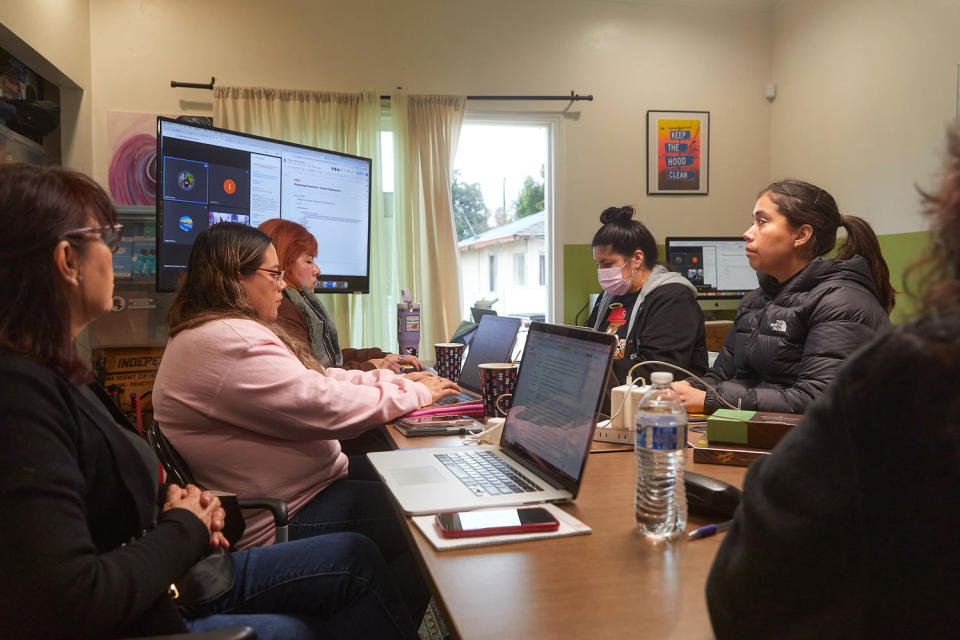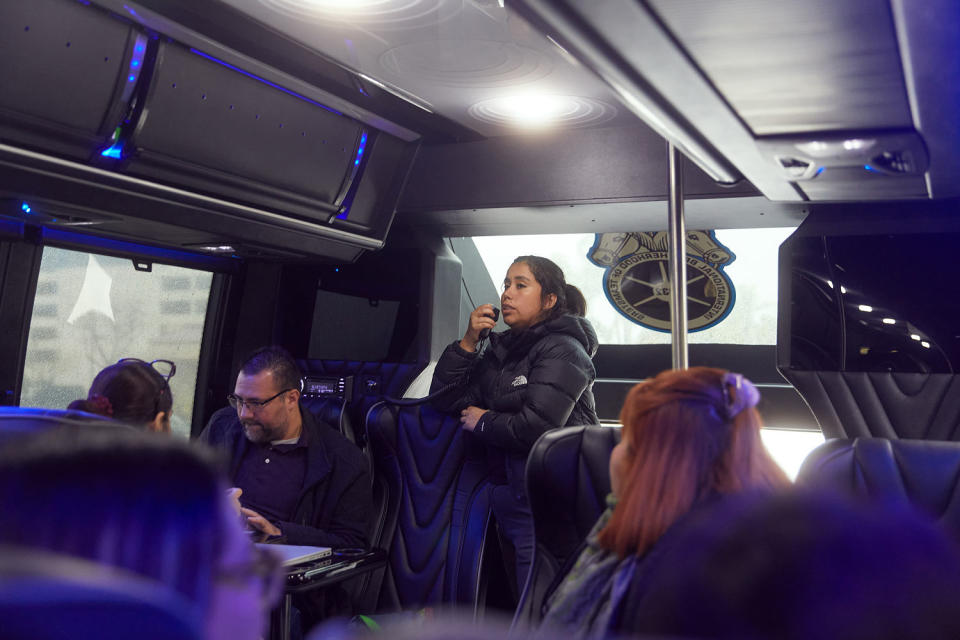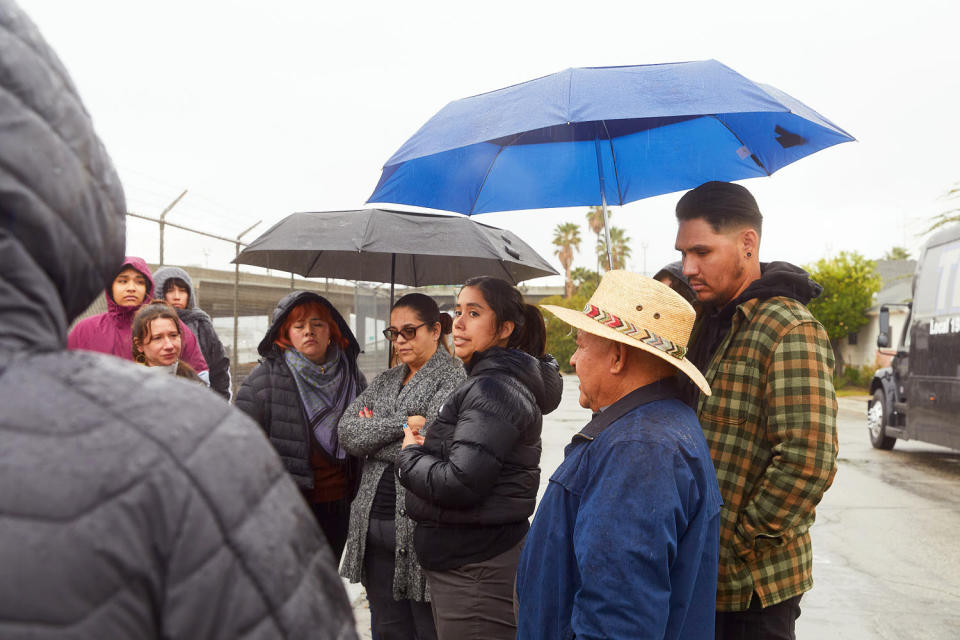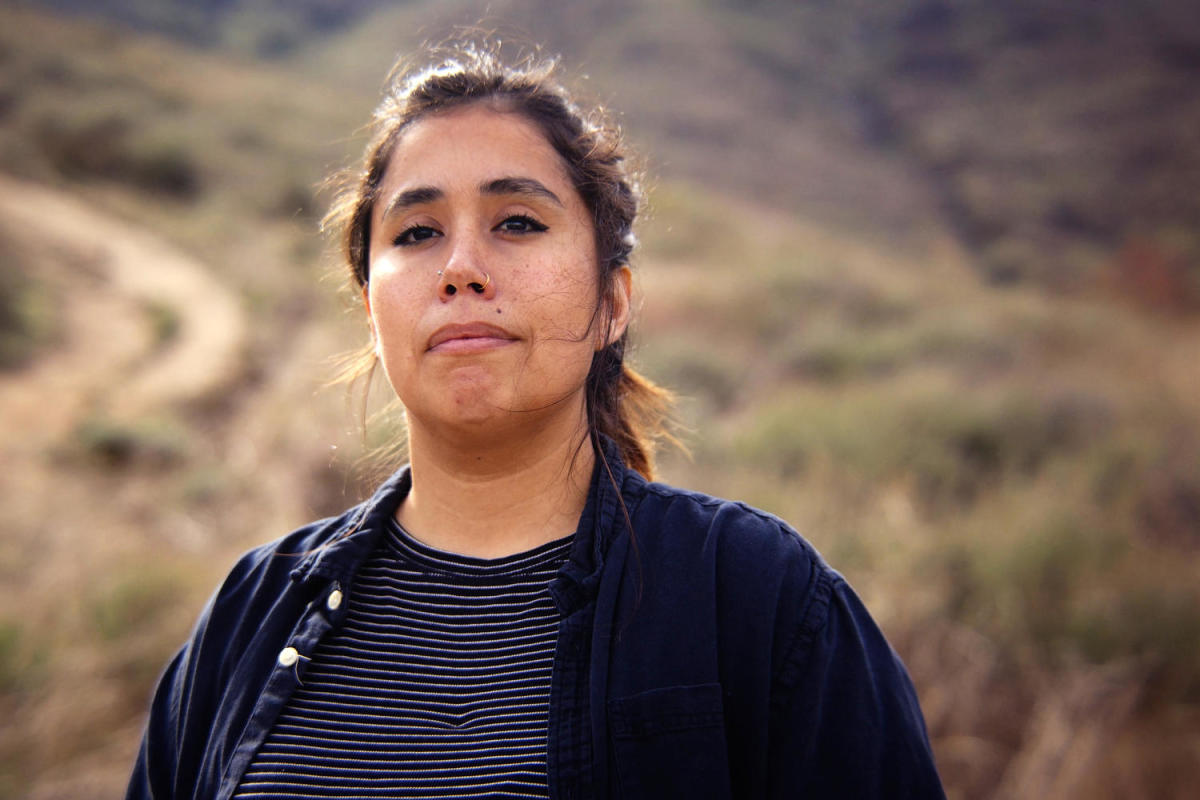Andrea Vidaurre, a 29-year-old Peruvian American organizer from Southern California, has won the prestigious Goldman Environmental Prize for her work protecting her predominantly Latino community from rampant air pollution.
Vidaurre is one of six grassroots activists being awarded the $200,000 prize, which recognizes people from all six inhabited continents who are taking extraordinary actions to protect the planet, on Monday night. She is being recognized for her grassroots leadership that persuaded state officials to adopt regulations to substantially improve air quality for millions of people in California and reduce toxic emissions from the local freight industry.
The prize was first awarded in 1990 and continues to be administered annually by the Goldman Environmental Foundation, which was founded by the late businessman and philanthropist Richard Goldman and his wife, Rhoda Haas Goldman.
“I feel incredibly honored and privileged to be the one to talk about our movement’s work,” Vidaurre said in an interview. “I feel a great responsibility to just uplift the fact that this has been decades of work from communities impacted by freight in the United States.”
Vidaurre was born and raised in California’s Inland Empire, a region about an hour east of Los Angeles that today is known for having some of the country’s worst air quality. But many of her childhood memories of the valley region are idyllic — climbing up and down the surrounding hills with her father and dog and enjoying the sprawling mountain scenery.
That started to change over the past few years, Vidaurre said, as she began seeing homes and schools in the area being replaced with warehouses and smelling diesel truck fumes that added to a growing air pollution crisis in the community.
“One day, you’re looking at a beautiful green field. The next year, you’re seeing giant concrete walls with trucks coming in and out all day, every day, spewing toxic diesel,” Vidaurre said.

The freight industry, which has long been considered an essential part of the nation’s economy, has faced the pressure of growing consumer expectations for next-day shipping. It also accounts for a significant share of air pollution for many U.S. communities — especially those that live and work near highways, ports, rail yards, warehouses and other freight routes.
“These emissions from transportation are also contributing to climate change,” Vidaurre said. “We’re breathing these toxic chemicals every single day … and more people are being exposed to it because there has been so much encroachment and expansion of warehousing.”
In 2018, Vidaurre started talking to her neighbors about their shared concerns over the environmental harms and health risks the changing freight industry has heaped on the Inland Empire. Many of them, including her Peruvian American relatives, worked in the industry in some capacity, from loading and unloading trucks and planes to working at warehouses.
“On really bad days, we do see it. We do see the smog covering the mountains, we do feel the thickness of it, we can smell it sometimes, especially on those hot summer days,” Vidaurre said. But most of the time, she said, it’s “hard to see air pollution” and its health risks.
There are different types of diesel fumes, some more harmful than others, but they’re all recognized toxic substances. Short-term exposure often causes eye and nose irritation, as well as headaches and nausea. More prolonged exposure can result in serious respiratory and heart diseases, as well as lung cancer.
“There is no safe level of diesel to be breathing in,” Vidaurre said.


Those conversations with community members fueled Vidaurre’s organizing efforts alongside environmental groups and warehouse and trucking labor unions to lobby the issue. In 2020, she co-founded the People’s Collective for Environmental Justice, a nonprofit organization advocating for improving the Inland Empire’s air quality, among other concerns. She has also conducted community tours for state officials so they could see the impact of the industry firsthand.
Fast-forward to 2023: State officials in California adopted two transportation regulations to significantly limit trucking and rail emissions and create a path to 100% zero emissions for freight truck sales by 2036.
“This is going to transform the transportation sector,” Vidaurre said. “We’re not going to see it in a day, but in 20 years, we are going to have a completely different system. We’re going to have completely different neighborhoods.”
Reflecting on that victory, Vidaurre said the biggest challenge she and members of her community faced in passing the regulations had to do with going against an industry that is “very well-funded” and that can persuade decision-makers.


Despite facing years of obstacles, such as delays and misinformation about their efforts, Vidaurre said, they overcame such obstacles by “building a big community coalition.”
“These things could be replicated in other cities, in other states,” she said.
Vidaurre said she looks forward to monitoring how the new regulations play out and coming up with solutions to continue improving transportation systems.
“We also have a responsibility to think about and really prioritize how we’re transforming the transportation system so that it can be more efficient and it can be less extractive to our communities, both to the health of our communities and to entire planet,” she said.
For more from NBC Latino, sign up for our weekly newsletter.
This article was originally published on NBCNews.com
